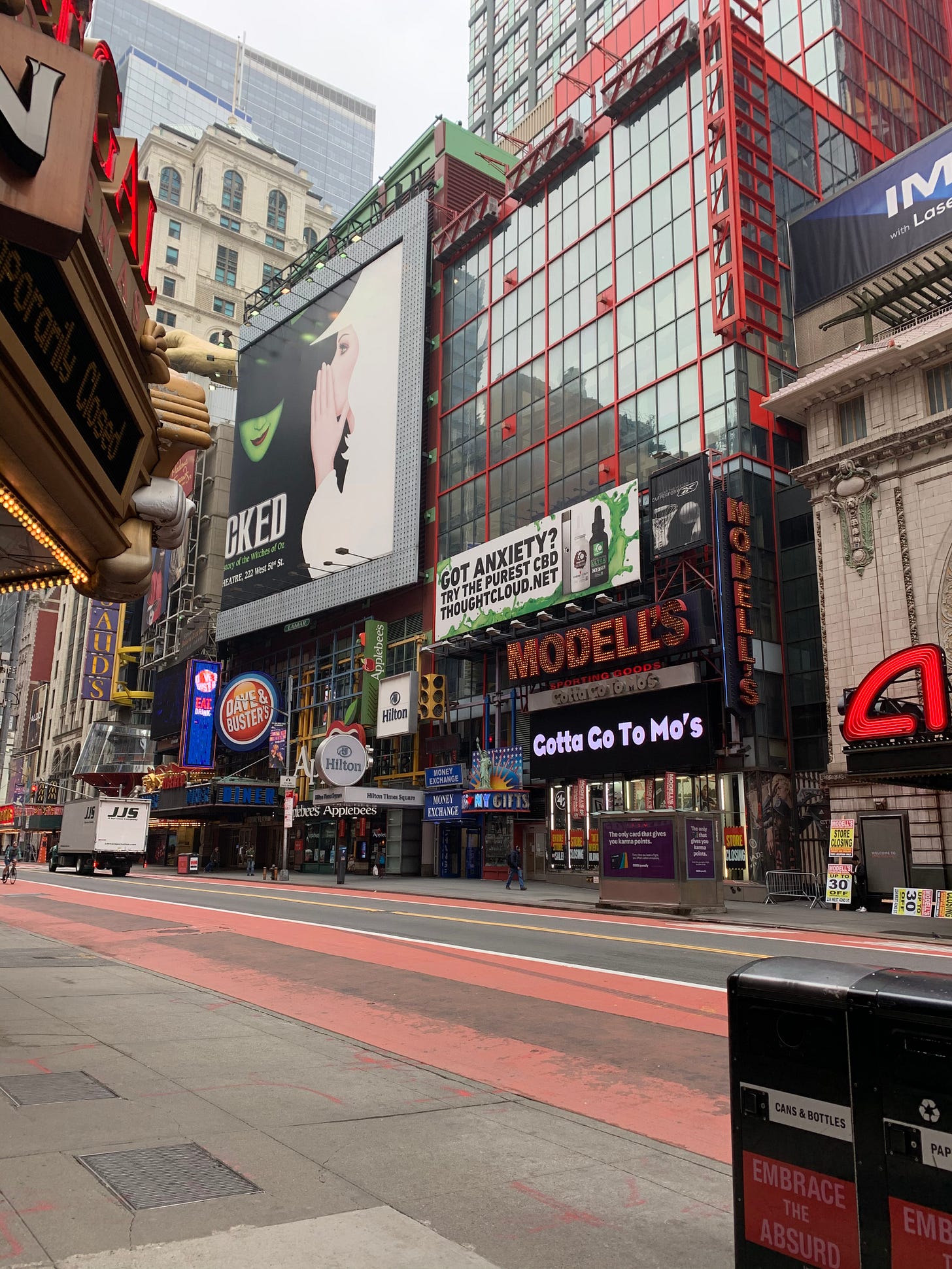The Profile Original: The Faces of American Business
I interviewed 7 small business owners on how the pandemic lockdowns affected their livelihood.
When I moved to New York five years ago, I was one of those really annoying people who would describe the city as the center of the universe. I loved the myriad of restaurants, I loved the hurried strangers, and God, don’t even get me started on how much I loved “the energy” of Times Square.
How quickly things change. Today, New York isn’t the center of the universe, it’s the epicenter of the coronavirus pandemic. The restaurants we love are shut, the hurried strangers are sitting at home, and there is quite literally no “energy” to be felt at what was once the busiest intersection in the country. Times Square is unrecognizable. So is New York City. So is all of America.
I wanted to know: How is the COVID-19 shutdown affecting small business owners across the country? So I spent the week documenting their experiences in The Profile’s first series, "The Faces of American Business."
Here are a few excerpts of their stories:
Mike Webster, the owner of Premier Indoor Golf, says the shutdown presents a level of stress beyond anything he’s ever experienced:
For me, sitting at home is unhealthy. So I come in here alone, walk around, look at stuff, and think about just how upsetting it’ll be if I actually have to close this place down permanently. It’s mine, you now? I built it. I designed every inch of it. It was all in my imagination, and I turned it into reality. The idea of closing it is depressing to say the least. There’s not really much work I can do, but I still keep coming in here day after day mostly to just try not to go crazy.
Simone Tong, the owner of Little Tong Noodle Shop, remains optimistic about the future of Chinese restaurants in the United States.
At the end of the day, I think the restaurant industry is full of stubborn, passionate people. There’s a lot of joy and pain every single day, but I keep going because part of me doesn’t know what else I would do if I wasn’t cooking, coming up with menus, and solving problems. We’ll learn a lot from this. Right now, though, we’re all just trying to figure out how to maintain stress and inspiration at the same time.
Frank Bonanno, the co-owner of Bonanno Concepts, says the inability to comfort others is the hardest part of the shutdown.
Dining out is supposed to be comforting. You’re supposed to feel taken care of. Going to a restaurant with friends and relaxing in an atmosphere that’s fun and vibrant is what helps you forget about the things that are bothering you. It’s an escape. It’s an oasis. That’s the beauty of dining out.
Jessica Rae, the owner of a dance and fitness studio, says creativity is more important than ever.
I have to stay optimistic. The way I see it is I have two choices: I can go the safe route and shut the studio, lay my people off, and keep all my savings intact. Or I can come up with a creative solution and take a risk for the first month in hopes of seeing added value for the long-term. I’ve always chosen the latter route, and I will continue to choose that route.
Michael Sadler, the co-owner of Republic of Booza, is still struggling to make sense of this unprecedented catastrophe.
One of the ominous things is that there’s literally nothing any of us could’ve done. When a company goes out of business, people don’t really have that much empathy for the entrepreneurs because it’s just assumed that they made bad business decisions. And here’s what I’m learning as a first-time entrepreneur: even if no bad decisions are made, even if there is no mis-execution, even if there are no problems, an external factor like this can derail everything. Everything.
Lisa Karvellas, the co-founder of Cedar Lakes Estate, believes leadership means caring about more than just the bottom line.
There has been one thing I feel very much in control of. I’ve always been the leader of my company in the good times. I’m learning a lot of lessons about how to be a leader in the bad times. I’m understanding the importance of keeping your values at the forefront during this time.
Michael Haar, the owner of Haar & Co. Barbershop, has been grappling with this new reality.
Everything always comes back to time. In a weird kind of way, I’m actually giving my body the time and rest it deserves. Slowing down is a foreign concept to me because I’m used to going a thousand miles an hour. Ironically enough, we, New Yorkers have been forced to slow down for once. It’s a new reality for all of us.


